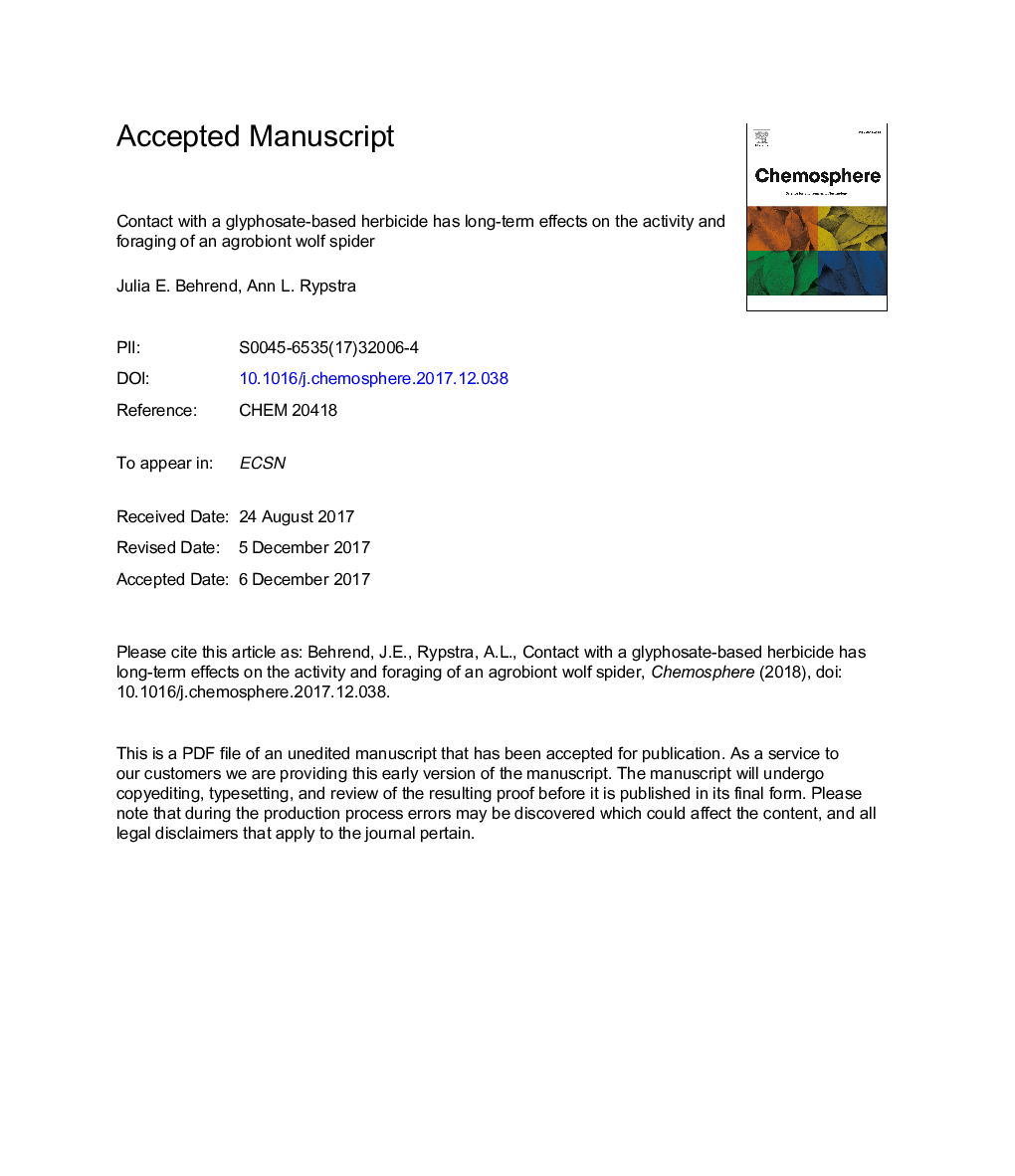| Article ID | Journal | Published Year | Pages | File Type |
|---|---|---|---|---|
| 8852454 | Chemosphere | 2018 | 35 Pages |
Abstract
Animals that live in conventional agroecosystems must cope with a variety of anthropogenic chemicals. Most of the focus of toxicology is on lethality, deformities, or short-term shifts in behavior. However, for animals that succeed in spite of their exposure, it is important to determine if long-term changes are brought on by their experience. We tested the hypothesis that contact with a commercial formulation of a glyphosate-based herbicide would affect the behavior of subsequent instars in the wolf spider, Pardosa milvina, a species that thrives in the agroecosystems of eastern United States. In one experiment, we housed females carrying egg sacs on a surface treated with the herbicide for 7Â h. Then we monitored their activity and foraging of the offspring 4Â weeks after emergence. We repeated the same tests on adults that had been housed with herbicide during their penultimate stage. In both studies, exposed spiders displayed higher levels of activity and greater capture success than their unexposed counterparts. Exposure of penultimate instar to herbicide had larger effects on the behavior of adult males than adult females. These results suggest that herbicides have the potential to adjust the behavior of individuals in the predator community. Thus, impact on the food web and their positive or negative potential for biological control may extend beyond their role in controlling weeds.
Related Topics
Life Sciences
Environmental Science
Environmental Chemistry
Authors
Julia E. Behrend, Ann L. Rypstra,
